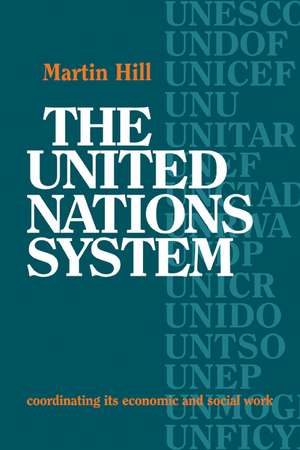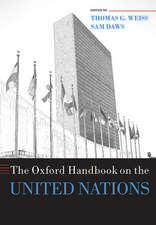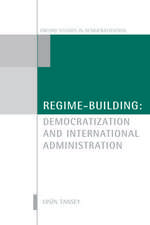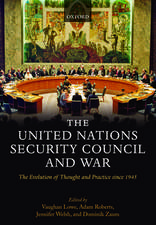The United Nations System: Coordinating its Economic and Social Work
Autor Martin Hillen Limba Engleză Paperback – 3 sep 2008
Preț: 285.75 lei
Nou
Puncte Express: 429
Preț estimativ în valută:
54.70€ • 59.43$ • 45.97£
54.70€ • 59.43$ • 45.97£
Carte tipărită la comandă
Livrare economică 21 aprilie-05 mai
Preluare comenzi: 021 569.72.76
Specificații
ISBN-13: 9780521072984
ISBN-10: 0521072980
Pagini: 272
Dimensiuni: 150 x 215 x 19 mm
Greutate: 0.4 kg
Ediția:1
Editura: Cambridge University Press
Colecția Cambridge University Press
Locul publicării:New York, United States
ISBN-10: 0521072980
Pagini: 272
Dimensiuni: 150 x 215 x 19 mm
Greutate: 0.4 kg
Ediția:1
Editura: Cambridge University Press
Colecția Cambridge University Press
Locul publicării:New York, United States
Cuprins
Part I. The problem of coordination and its setting: 1. Relationship problems inherent in the decentralized United Nations System; 2. Developments that have affected inter-agency relationships and coordination; 3. The content of coordination activities Administrative and budgetary coordination; 4. Intergovernmental organs responsible for coordination The General Assembly; 5. The Administrative Committee on Coordination; 6. The Secretary-General and the secretariats of the United Nations and the agencies; 7. Some current constraints on order and coordination in the system; Part II. Some conclusions and suggestions: 8. The context and the perspective; 9. The role of the Economic and Social Council Leadership and coordination; 10. Other aspects of UN–agency relationships; 11. The functioning of the Administrative Committee on Coordination; 12. Some structural and organizational issues; 13. Expansion, adaptation, concentration and the responsibilities of the General Assembly.
Descriere
First published in 1978 this book looks at how the UN System was to cope with the overwhelming volume of world wide economic and social tasks that had been placed upon it.
















